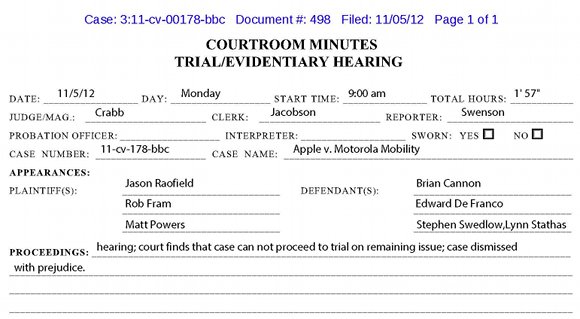 United States v. White, US 7th Cir. (10/26/12)
United States v. White, US 7th Cir. (10/26/12)
Civil Rights, Constitutional Law, Criminal Law
White created a website to advance white supremacy and included a statement that “everyone associated with the Matt Hale trial has deserved assassination for a long time.” The site also included information related to the foreperson of the jury that convicted Hale, a white supremacist, of criminally soliciting harm to a federal judge. Although a jury convicted him of soliciting the commission of a violent federal crime against a juror, 18 U.S.C. 373, the district court held that the government failed to present sufficient evidence for a reasonable juror to conclude that White was guilty of criminal solicitation, and that White’s speech was protected by the First Amendment. The Seventh Circuit reinstated the conviction and remanded for sentencing. A rational jury could have found beyond a reasonable doubt that, based on the contents of the website, its readership, and other contextual factors, White intentionally solicited a violent crime against Juror A by posting Juror A’s personal information on his website. Criminal solicitation is not protected by the First Amendment.
American Freedom Defense Initiative v. Suburban Mobility Authority for Regional Transportation, US 6th Cir. (10/25/12)
Communications Law, Constitutional Law
American Freedom Defense Initiative is a nonprofit corporation that wanted to place an advertisement on the side of city buses in Michigan. The advertisement read: “Fatwa on your head? Is your family or community threatening you? Leaving Islam? Got Questions? Get Answers! RefugefromIslam.com”. Suburban Mobility Authority for Regional Transportation (SMART), refused to display the advertisement. AFDI sued, claiming a First Amendment violation. The district court granted a preliminary injunction, holding that plaintiffs likely could show that SMART’s decision was arbitrary. The Sixth Circuit reversed. SMART’s policy prohibits: political or political campaign advertising; advertising promoting the sale of alcohol or tobacco; advertising that is false, misleading, or deceptive; advertising that is clearly defamatory or likely to hold up to scorn or ridicule any person or group of persons; and advertising that is obscene or pornographic; or in advocacy of imminent lawlessness or unlawful violent action. The restrictions, which concern a nonpublic forum are reasonable, viewpoint-neutral limits that do not deny AFDI’s First Amendment rights. The injunction would cause substantial harm to others, compelling SMART to post on its buses messages that have strong potential to alienate people and decrease ridership; the public interest would not be served by this preliminary injunction.
 A federal court dismissed Apple’s fair, reasonable, and non-discriminatory (FRAND) patent licensing claims against Motorola Mobility, Inc. this morning.
A federal court dismissed Apple’s fair, reasonable, and non-discriminatory (FRAND) patent licensing claims against Motorola Mobility, Inc. this morning.

 This past weekend, I attended the
This past weekend, I attended the  After three years, language-learning software company
After three years, language-learning software company  The Sixth Circuit granted Ohio a stay of the district court’s October 26 order granting a preliminary injunction that requires the state to count provisional ballots cast in the wrong polling place due to poll-worker error (wrong-place/wrong-precinct ballots) in the November election. The court previously affirmed an order that Ohio count right-place/wrong-precinct provisional ballots caused by poll-worker error. Plaintiffs failed to show strong likelihood of success on the merits of constitutional claims concerning wrong-place/wrong-precinct ballots. The salient feature of the right-place/ wrong-precinct problem was disenfranchisement, by worker error, of voters who arrive at the correct place, a situation caused by Ohio’s system of multi-precinct polling places. Though voters rely on workers to direct them to the proper precinct in the polling place, they are not as dependent in identifying their correct polling place. Ohio law requires officials to provide notice of where they are eligible to vote; information is easily accessible. There is sparse evidence of workers sending voters to the wrong polling location. The state has a legitimate interest in maintaining its precinct-based voting system; there is a strong public interest that militates against changing the rules during early voting. The injunction would interfere with orderly election administration and cause confusion among poll workers and voters.
The Sixth Circuit granted Ohio a stay of the district court’s October 26 order granting a preliminary injunction that requires the state to count provisional ballots cast in the wrong polling place due to poll-worker error (wrong-place/wrong-precinct ballots) in the November election. The court previously affirmed an order that Ohio count right-place/wrong-precinct provisional ballots caused by poll-worker error. Plaintiffs failed to show strong likelihood of success on the merits of constitutional claims concerning wrong-place/wrong-precinct ballots. The salient feature of the right-place/ wrong-precinct problem was disenfranchisement, by worker error, of voters who arrive at the correct place, a situation caused by Ohio’s system of multi-precinct polling places. Though voters rely on workers to direct them to the proper precinct in the polling place, they are not as dependent in identifying their correct polling place. Ohio law requires officials to provide notice of where they are eligible to vote; information is easily accessible. There is sparse evidence of workers sending voters to the wrong polling location. The state has a legitimate interest in maintaining its precinct-based voting system; there is a strong public interest that militates against changing the rules during early voting. The injunction would interfere with orderly election administration and cause confusion among poll workers and voters. A snippy apology is apparently not what the judges involved in Apple’s U.K. patent litigation over Samsung tablets ordered, according to
A snippy apology is apparently not what the judges involved in Apple’s U.K. patent litigation over Samsung tablets ordered, according to  Last week, on October 26, Kickflip, Inc. (doing business as, and hereinafter referred to as, Gambit)
Last week, on October 26, Kickflip, Inc. (doing business as, and hereinafter referred to as, Gambit)  On Monday, Apple filed an
On Monday, Apple filed an 
 United States v. White
United States v. White Yesterday, WhitServe LLC
Yesterday, WhitServe LLC